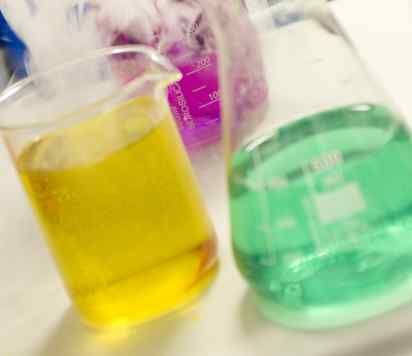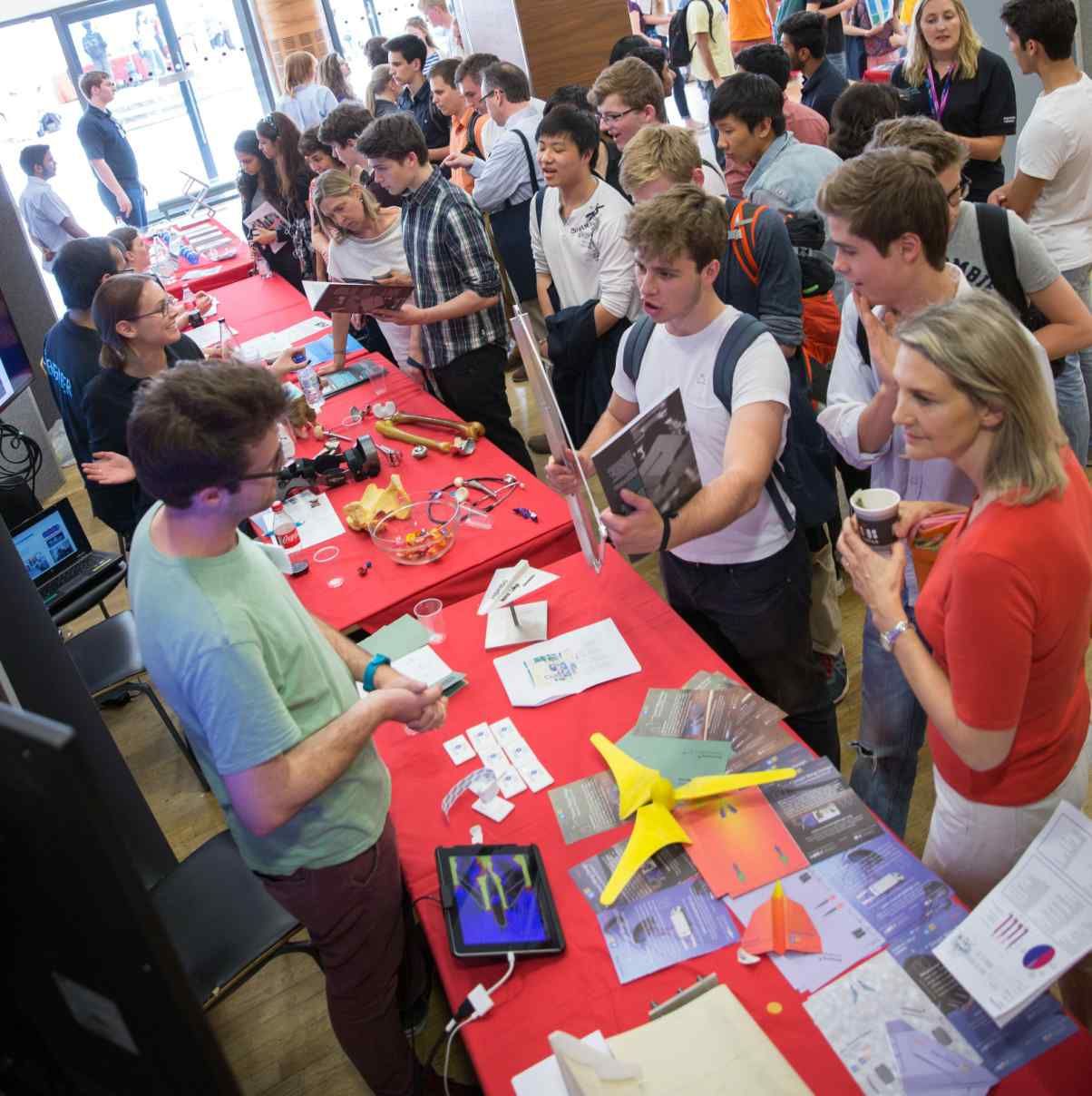Chemistry Scholarships
The Department typically admits 65-70 PhD and 90 - 100 MRes students each year. Funding for these students comes from a diverse range of sources, including the EPSRC, industry, scholarships and self-funded students. A selection of PhD Studentships currently available are detailed below.
Accordion - available studentships
- Chemistry International Continuation PhD Scholarship
- Department of Chemistry Departmental PhD Scholarships
- EPSRC CDT in Chemical Biology - Empowering UK BioTech Innovation
- PhD Studentship in Chemical Biology - Prof. Jason Micklefield
This scholarship offers a full fee waiver for the last academic year of a PhD for recent Imperial graduates. The recipients of this scholarship will be expected to finish the PhD project within 3 years, with the first 2 years of fees being funded by the applicant. In case any extensions are needed beyond 3 years, these would have to be funded by the applicant. Only Imperial College graduates that have overseas fee status are eligible to apply. The Department encourages diversity and will accept a high merit degree classification from applicants. For more information please contact chemphd@imperial.ac.uk.
The Department of Chemistry has departmental scholarships available for PhD applicants starting in 2025/26.
This scheme is only eligible to applicants who have home fee status. The scholarship will cover the full fees and stipend (UKRI London rate - £21,237 for 2024-25) for the 3 years 6 months of the student’s PhD studies.
We encourage applications from all backgrounds to apply. The Departmental Scholarship Panel will consider academic excellence, research potential and extracurricular activities. The Panel will also take into account other aspects, such as overcoming adversity, outreach and community activities and widening participation.
Interested candidates should make contact and discuss a research project with a PhD supervisor based in the Chemistry Department. After discussions with the chosen supervisor, candidates must complete a Chemistry Department scholarship application form. The supervisor will then return the documentation to the department for consideration by the Scholarship Panel. The date for submission of this documentation is Monday 2nd December 2024. There will be no panel interview.
We are committed to equality and valuing diversity. The Department of Chemistry is an Athena SWAN gold Award winner, a Stonewall Diversity Champion, a Two Ticks Employer, and is working in partnership with GIRES to promote respect for trans people. We particularly encourage applicants from underrepresented backgrounds to apply.
The mission of the ICB CDT is to train postgraduate researchers with the language, knowledge and skills to enable them to work at the interface between the physical and life sciences, producing researchers with expertise and understanding that spans both fields, and who are able to embrace Lab of the Future platforms – which is at the heart of our new remit. This skill set is in great demand from future employers and short supply and has the potential to revolutionise the state of the art with respect to manipulating, measuring and modelling molecular interactions in biological systems and will transform R&D pipelines.
This will transform our understanding of molecular mechanisms of disease, stimulate novel agrochemical design and underpin structured product breakthroughs, whilst also enabling fundamental discovery in the life and medical sciences.
Our programme, with EDI, student empowerment & cohort formation at its core, fuses blue skies & translational research with professional skills courses and workplace training. Students emerge with a knowledge of molecular technologies, sustainable product development, lean innovation & early-stage commercialisation. Our multi-disciplinary supervision model, with every student in the CDT having at least two supervisors, one from the physical sciences and one from the life sciences, comprises 1-year MRes + 3-year PhD, with for the first time an optional 1 year post doctoral fellowship, called Elevate, that will offer graduates unparalleled in-work experience.

PhD Studentship in Chemical Biology
Imperial College, London
Applications are invited for a four year PhD studentship, starting 29th September 2025, funded by the European Research Council (ERC) project Enzymatic Methods for Peptide Synthesis (EZYPEP). The student will be based in the Department of Chemistry, Molecular Sciences Research Hub, Imperial College, under the supervision of Professor Jason Micklefield. Tuition fees will be covered and you will receive a tax free stipend set at the UKRI-London rate.
Peptides are essential in life and are widely used as therapeutic agents, vaccines, biomaterials and in other important applications. Currently there are more than 80 peptide drugs approved world-wide, with many more in clinical trials, including essential antibiotics, antiviral and anticancer agents as well as treatments for diabetes. Most peptides are produced by solid phase peptide synthesis and related chemical methods that are outdated, problematic to scale-up, require large amounts of deleterious reagents and solvents that are damaging to the environment. In this PhD project we will address this problem by developing novel enzymatic methods for more sustainable, cleaner and scalable peptide assembly. The project will focus on developing next generation enzymatic peptide assembly technology that can deliver valuable pharmaceuticals ranging from small peptide drugs through to larger antibody drug conjugates (ADC). The PhD research programme will include: (i) using bioinformatics approaches to discover new ligases and other enzymes from nature, that facilitate peptide assembly and functionalisation; (ii) developing directed evolution approaches to improve the activity and substrate scope of the enzymes for peptide assembly; (iii) optimising processes for producing target peptides using novel separation methods to isolate peptide products.
Training will be provided in organic chemistry and biochemistry, including protein engineering, directed evolution, enzyme characterisation (X-ray crystallography and AI based modelling) and enzyme assays. Candidates are not expected to have expertise in all these areas at the outset; above all, scientific curiosity, and a desire to work in a multidisciplinary environment are most important. Candidates with a degree in Chemistry, Biochemistry, Biological Sciences or a related science, who also possess a desire to do cutting edge research at the Chemistry-Biology interface are encouraged to apply. Applicants should have, or expect to achieve, at least a 2.1 honours degree or a master’s in a relevant science or engineering related discipline. Applications including a brief cover letter, CV (no page limit), and the names of at least two referees should be sent by email to jason.micklefield@manchester.ac.uk (Deadline for applications is Monday the 18th November)
Please note the Micklefield lab will be based at Imperial College, London from the 1st of December 2024.
Examples of related research and links from the Micklefield lab:
Cryptic enzymatic assembly of peptides armed with β-lactone warheads. Xu et al. Nature Chem Biol 2024, 20, 1371–1379. https://doi.org/10.1038/s41589-024-01657-7
Enzymatic synthesis of peptide therapeutics. Xu & Micklefield Nature Chem Biol 2024, 20, 1256–1257. https://doi.org/10.1038/s41589-024-01658-6
Discovery, Characterisation and Engineering of Ligases for Amide Synthesis. Winn et al Nature 2021, 593, 391–398. https://doi.org/10.1038/s41586-021-03447-w
Merging Enzymes with Chemocatalysis for Sustainable Amide Bond Synthesis. Bering et al Nature Commun. 2022, 13, 380. https://doi.org/10.1038/s41467-022-28005-4
Programmable late-stage C−H bond functionalization enabled by integration of enzymes with chemocatalysis. Craven et al. Nature Catalysis, 2021, 4, 385–394.
https://doi.org/10.1038/s41929-021-00603-3
https://www.micklefieldlab.chemistry.manchester.ac.uk
https://www.imperial.ac.uk/chemistry/


